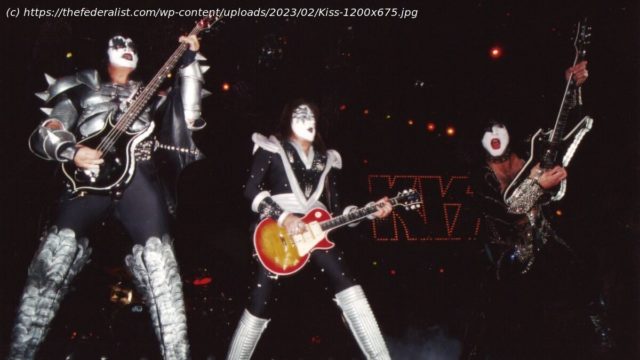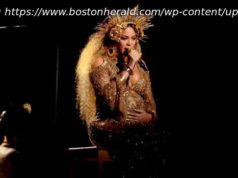Array
“Anybody wants to get mellow, you can turn around and get the f-ck outta here!”
To be honest, nothing Ted Nugent might have said after that would have mattered: He’d already won over my 15-year-old soul with that blistering, testosterone-soaked introduction to “Wang Dang Sweet Poontang.”
Nugent’s “Double Live Gonzo” album, released in 1978, was loaded with such morsels. As a teenager, such ebullitions reinforced the insubordinate rock ‘n’ roll creed to which I’d long since committed: Think for yourself, go against the grain, and, most important, make your parents uneasy.
Of course, that last bit only mattered if your folks actually cared about what you were putting on your turntable or into your 8-track.
My alcohol-addled, perpetually-on-the-verge-of-divorce parents were far too checked out to worry about my grades or where I was, let alone my music, so I was forced to look to other authoritarians for credible condemnation: teachers, politicians, police. You know — The Man.
Truth-to-tell, The Man provided the best rebellion fodder for most teens of that era. You see, whereas many of our parents did have some redeeming qualities, the same could not be said of the dingbats running the country: By 1979, with inflation and unemployment at record levels and our international position in the toilet, the government had so thoroughly screwed up almost every aspect of American life that news anchors were routinely referencing a “misery index” as an assessment of the nation.
Indeed, as the decade of bell bottoms and mood rings came to a close, much was in limbo, but there was one thing about which we were all unequivocally certain: The people in charge are utter asshats. Are they put off by songs such as “Yank Me, Crank Me“? That was a great reason to be a Nugent fan — in retrospect, maybe the best one.
By the early 1980s, the malaise of the Carter years had given way to the get-tough strutting of the Reagan era. Though the times might have changed, the subversive spirit of rock and roll had not, and, just as The Man was starting to get comfortable with acts like Nugent, a new breed of musicians was kicking in the door and coming for the kids: The raw, back-to-basics onslaught pioneered by the Ramones in late-’70s New York had ignited a rebel snottiness in America’s teens not seen since the 1950s.
By the time it landed in California in the early ’80s, bands such as Fear and The Circle Jerks were primed to once again make sure your parents lost sleep over what you were up to. And so, year upon glorious year, it continued, the sublime, unstoppable middle finger to everything you were supposed to do.
Best of all, every successive incarnation of rock and roll seemed intent on upping the ante. Whereas the establishment might have thrown a tantrum when Elvis fused hillbilly music with rhythm and blues, they were all but convulsing once heavy metal began inbreeding with punk. The sound and culture conceived from this unholy consummation was unabashedly menacing, and so, by 1985, federal legislators were condemning this dangerous filth, insisting that it had to be stopped. From Motley Crue to 2 Live Crew, music was apparently more of a threat to our fragile youth than AIDS or Soviet ICBMs.
Things came to a head when then-Sen. Al Gore’s wife, Tipper, organized a cabal of other bored D.C. housewives to lobby Congress to censor music by Judas Priest, W.A.S.P., Prince, and others. In response, everyone from John Denver to Twisted Sister’s Dee Snider showed up in Washington with intelligent, articulate arguments that made those calling for censorship — and the career politicians they were married to — look like buffoonish, bubble-dwelling mediocrities who wasted money on inane pursuits while children went without medicine.
The realization the numbskulls in government in the ’80s were as bad as or worse than those of 10 years earlier was prima facie evidence that we were still on the right track, and it was our rockers who exposed them as the horses’ asses we all knew they were. Which is why, if you grew up watching this all play out and headbanging in agreement, nothing is more dejecting than seeing the rockers that defied The Man become him.Rockstars for Mandates
To paraphrase a classic punk tune, the 1970s and ’80s feel like another time, another planet.
In an August 2021 Interview with Yahoo Entertainment, Gene Simmons, leader of ’70s shock rockers Kiss, came out and said he would like to see compulsory Covid vaccination, backed up by the force of law. He also called for mandatory masking of the face, again, enforced at the point of a gun. This is, of course, precisely the position of the U.S. government — a government that, in 2023, is not only still astoundingly incompetent, but also unprecedentedly authoritarian on a frightening scale.






